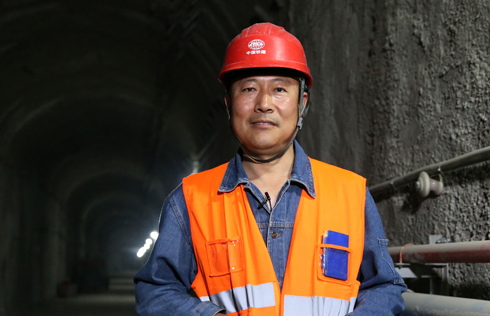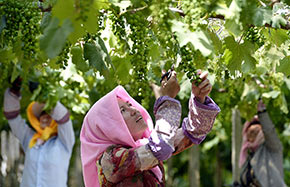US-Canada softwood lumber row turns Canadian attention to China
VANCOUVER - A row that erupted this week between Canada and the United States over Canadian softwood lumber exports proves that Canada must expand its lumber trade to China and other Asian markets, Canadian officials said Wednesday.
New tariffs
Canada's government and the lumber industry must quickly diversify their export markets to reduce reliance on the United States, Premier of Canada's British Columbia province Christy Clark said.
"We have already increased our softwood lumber exports to China by over 2,000 percent with strong progress in other markets," she told reporters gathered at a lumber yard in the Vancouver suburb of Maple Ridge.
"We are going to continue to work on that. It is our hope that one day our markets will be so diversified that we don't need another softwood deal with the United States," she said.
This week, the United States slapped Canadian softwood lumber with new import duties ranging from 3 to 24 percent, starting next week.
In recent decades, US administrations have occasionally blasted the Canadian lumber industry as unfairly subsidized, claiming that Canadian softwood is being "dumped" into the US market at costs that undercut US forest producers.
The US lumber industry argues that because most Canadian timber is harvested on government-owned land, the resulting low prices for the right to harvest that wood has kept Canadian lumber below market value.
The new tariffs applied to Canadian wood by the Trump administration is a "shakedown" that mirrors similar unsuccessful attacks on Canadian lumber by the US industry and government in the past, said David Emerson, BC's special trade envoy to the United States.
"We're going down a path we've all seen before," he told reporters on a conference call. "It's egregious. It's terrible."
He said the Canadian federal government needs to fight the tariffs aggressively through every legal means as it has done successfully in the past. But Canada's lumber industry must diversify in the meantime, he said.??
Looking to China
"Hopefully (this fight) will cause Canadians to reflect deeply about the importance of building trade bridges with other parts of the world, and for British Columbia, that's really largely going to involve Asia," he said.
Canada exports about C$4.8 billion($3.54 billion) in total forest products to China annually, including about C$1.6 billion($1.18 billion) in lumber.
Over the last ten years, Canadian forest product exports to China have climbed from 5 to 15 percent of the country's total forestry exports - still just a fraction of the lumber that Canada exports to the United States.
There are currently no import tariffs applied to Canadian softwood by China, according to the Forest Products Association of Canada (FPAC).
Derek Nighbor, FPAC's CEO, told Xinhua in a Wednesday interview that he travelled to China three months ago as part of a BC government trade mission. He said China's appetite and ability to build commercial and residential structures with BC wood is increasing.
"As our companies get to know the Chinese market better, and as our governments deepen their relationships, I think there is untapped potential in China most definitely," he said.
The CEO noted both Canada and China are struggling with an unpredictable US administration. "We and the Chinese share a common bond right now just around general uncertainty," he said.
Meanwhile, Canada's International Trade Minister Francois-Philippe Champagne and Finance Minister Bill Morneau visited China last week as part of exploratory free trade talks, according to the CBC, Canada's public broadcaster.
Morneau said the trip aimed to boost relations with China and key industries there, while Champagne worked to promote the use of Canadian lumber in home construction in China.
Canada's Minister of Natural Resources Jim Carr will also travel to China in June with forestry leaders in a bid to find new markets for Canadian softwood, the report said.





















